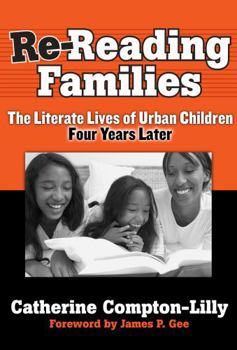Re-Reading Famililes: The Literate Lives of Urban Children, Four Years Later
Four years after publishing her provocative study, Reading Families: The Literate Lives of Urban Children, Compton-Lilly revisits the same group of urban students (then first graders, now fourth and fifth graders) and their families. Armed with rare longitudinal data from follow-up interviews and reading assessments, she once again upsets widespread misconceptions about reading and urban families. This eye-opening sequel uses case studies to explore important issues, such as students' feelings of connection to their school; gender and schooling; parents' experiences dealing with "the system"; high-stakes testing; and technology use at home.
Building on past insights, this book:
Uses an innovative approach to educational research to explore why urban students often have difficulty becoming proficient readers. Employs case studies to support a new construct called "reading capital." Offers important recommendations for teaching in diverse communities. Models longitudinal qualitative research, describing the critical role it plays in studying a child's experiences with school.Format:Paperback
Language:English
ISBN:0807747912
ISBN13:9780807747919
Release Date:May 2007
Publisher:Teachers College Press
Length:160 Pages
Weight:0.53 lbs.
Dimensions:0.4" x 6.6" x 8.9"
Customer Reviews
0 rating





